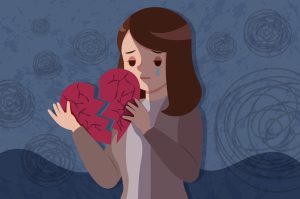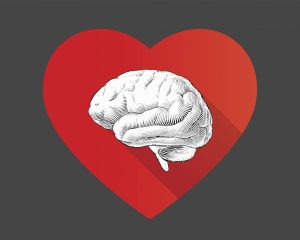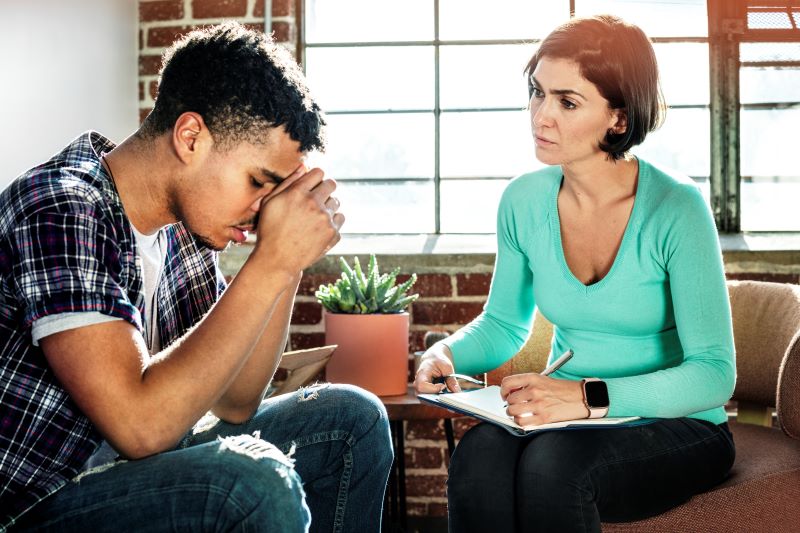Lovesickness is one of the most common afflictions in the world. What makes it so unique is that no one knows what causes it or how to cure it. Lovesickness can be caused by a person, place, thing, or event and affects people from all walks of life and backgrounds. It’s not always easy to recognize when you’re lovesick because there are many different symptoms. There are also cures for lovesickness depending on who you ask and what they say about why it happens in the first place.
Contents
What Is Lovesickness?
 Lovesickness is a term used to describe the physical and emotional symptoms that occur when someone is in love. The most common symptoms are feelings of euphoria, happiness, and excitement, but can also include anxiety, depression, and loss of appetite.
Lovesickness is a term used to describe the physical and emotional symptoms that occur when someone is in love. The most common symptoms are feelings of euphoria, happiness, and excitement, but can also include anxiety, depression, and loss of appetite.
Lovesickness has been around for centuries and is thought to be caused by changes in the brain chemicals serotonin and dopamine. These hormones are responsible for moods and emotions, so it’s no surprise that they play a role in lovesickness too.
While there is no cure for lovesickness, there are treatments available that can help ease the symptoms. Some people choose to go cold turkey and cut all ties with the person they’re in love with, while others find different ways to cope like exercise, therapy, or medication.
Signs of Lovesickness

There are many signs of lovesickness, but not everyone experiences them all. The most common symptoms are:
Extreme Happiness And Joy
These are probably the most common symptoms of lovesickness. When you’re in love, your brain releases a flood of feel-good hormones like serotonin and dopamine. This is what causes the feeling of happiness and excitement that comes with being in love. This sign usually goes away after the honeymoon phase of a relationship ends.
Anxiety And Nervousness
Another common symptom of lovesickness is anxiety or nervousness. This may be caused by the fear of losing the person you’re in love with or by simply not knowing what to do next. This sign is usually the most intense during the early stages of a relationship.
Depression
Lovesickness can also cause depression. This may be due to a number of factors, like feeling down about yourself or feeling hopeless about your relationship. Depression usually goes away after the honeymoon phase ends.
Loss Of Appetite
One final sign of lovesickness is a loss of appetite. You may not feel hungry at all when you’re in love, or you may only want to eat certain foods. This symptom is often caused by stress and anxiety. This sign usually goes away after the relationship ends.
Insomnia
This sign of lovesickness is pretty self-explanatory. When you’re in love, you may have a hard time falling asleep or staying asleep. This is usually caused by the anxiety and nervousness that come with being in love.
Restlessness
This sign of lovesickness is also pretty self-explanatory. When you’re in love, you may feel restless and have a hard time sitting still. This is usually caused by the excitement and happiness that come with being in love.
Anxiety
Thinking about the person you’re in love with can cause a lot of anxiety. You may worry about what they’re doing, who they’re with, or how they feel about you. This sign is usually the most intense during the early stages of a relationship.
Causes of Lovesickness

There are many causes of lovesickness, but the most common one is a change in the brain chemicals serotonin and dopamine. These hormones are responsible for moods and emotions, so it’s no surprise that they play a role in lovesickness too.
Other causes of lovesickness can include:
Fear Of Losing The Person You Love
This is probably the most common fear associated with lovesickness. When you’re in love, you may be scared of losing the person you care about. This fear can cause a lot of anxiety and nervousness. This cause usually goes away after the relationship ends. Sometimes it can also cause depression.
Not Knowing What To Do Next
When you’re in love, you may not know what to do next. This can be caused by a number of things, like fear of commitment or simply not knowing how to handle the new relationship. This cause usually goes away after the honeymoon phase ends.
Comparison With Other Relationships
When you’re in love, you may compare your new relationship with past relationships. This can lead to feelings of anxiety and depression if you think that your current relationship is inferior to past ones.
Stress And Anxiety
Being in love can be very stressful and overwhelming. You may feel like you have a lot of pressure to make the relationship work. This stress and anxiety can cause a number of different symptoms, like loss of appetite, insomnia, and restlessness.
Ending of Relationship
Ending a relationship can also cause lovesickness. This is usually caused by the fear of being alone or the fear of never finding someone else. This fear can cause depression, anxiety, and stress. This reason can also cause a loss of appetite and insomnia.
Benefits of Lovesickness
 There are many benefits of lovesickness, but the most common one is that it usually leads to a stronger relationship. When you’re in love, you may be willing to do anything to make the relationship work. This can lead to a lot of compromising and sacrifice on your part.
There are many benefits of lovesickness, but the most common one is that it usually leads to a stronger relationship. When you’re in love, you may be willing to do anything to make the relationship work. This can lead to a lot of compromising and sacrifice on your part.
Another benefit of lovesickness is that it’s usually very exciting. You may feel like you’re on top of the world when you’re in love. This feeling can be addictive and make you want to stay in the relationship no matter what.
Lovesickness can also cause euphoria, which is a feeling of extreme happiness and excitement. This feeling can be really wonderful and make you feel like you’re invincible.
Lastly, lovesickness can cause increased creativity. When you’re in love, you may be more inspired to write songs, poems, or even just make art. This increased creativity can be a really great thing and help you express your feelings for the person you love.
Negative Impacts of Lovesickness

There can be negative impacts of lovesickness as well, but they’re usually not as common as the positive impacts. Some of the common are:
Depression
This negative impact of lovesickness is probably the most common. When you’re in love, you may feel like you can’t live without the person. If the relationship ends, you may experience a lot of depression and sadness.
Anxiety
Thinking about the person you’re in love with can cause a lot of anxiety. You may worry about what they’re doing, who they’re with, or how they feel about you. This sign is usually the most intense during the early stages of a relationship.
Behavioral Changes
When you’re in love, you may change the way you act. You may become more possessive or jealous of the person you love. This can lead to a lot of arguments and fights.
Loss Of Appetite And Weight Loss
Another common negative impact of lovesickness is a loss of appetite. This can be caused by stress and anxiety, which are two common symptoms of lovesickness. If this happens, you may lose weight quickly and not have enough energy to do anything.
Mood Swings
When someone feels lovesick, they can experience a lot of mood swings. One minute they may be really happy and the next they may be really sad. This can be really hard on both you and the person you’re in love with.
Restlessness
If you’re restless, it’s because your mind won’t stop thinking about the person you love. You may feel like you can’t concentrate on anything else or that you’re constantly walking around aimlessly.
How To Deal With Lovesickness?

There are many ways to deal with lovesickness, but the most important thing is to talk to someone about it. Some of these are:
Talk To Therapist
This is probably the best option if you’re feeling really overwhelmed by lovesickness. A therapist can help you deal with all the different emotions you’re feeling and give you some tools to deal with them. You can also talk to them about your relationship and get some feedback.
Talk To Friends And Family
If you don’t want to talk to a therapist, you can always talk to your friends or family. They may not be able to help you as much as a therapist can, but they can still offer support and advice.
Write-In Journal
This is a great way to release all the emotions you’re feeling. You can write about how you’re feeling, what’s going on in your relationship, and anything else that’s on your mind. This can be really helpful in understanding your feelings better.
Stay Busy
When you’re busy, it’s harder for your mind to focus on the person you love. Try filling up your schedule with activities, meet-ups with friends, and anything else that will keep you busy.
Take Care Of Yourself
Lovesickness can take a toll on your body, so it’s important to make sure you’re taking care of yourself. Make sure you’re eating healthy foods, getting enough sleep, and exercising regularly. This will help improve your mood and energy levels.
How To Help Someone Who Is Lovesick?

If someone you know is lovesick, there are some things you can do to help them out. Some of these are:
Listen To Them
The most important thing you can do is listen to the person who is lovesick. Let them talk about their feelings and don’t interrupt them. This will help them feel like they’re being heard and that someone cares about them.
Offer Support
If the person you know is lovesick, offer them your support. Let them know that you’re there for them and that you want to help them get through this tough time.
Don’t Judge Them
It’s important not to judge the person who is lovesick. They’re going through a lot of emotions right now and don’t need any extra judgment from anyone.
Encourage Them To Seek Help
If the person you know is really struggling, encourage them to seek professional help. This is the best option if they’re feeling overwhelmed by their feelings of love.
Conclusion
In conclusion, lovesickness can have a lot of negative impacts on both you and the person you love. It’s important to deal with lovesickness in a healthy way, and there are many ways to do that. If you know someone who is lovesick, be there for them and offer your support.
Lovesickness can take a toll on your body, so it’s important to make sure you’re taking care of yourself. Make sure you’re eating healthy foods, getting enough sleep, and exercising regularly. This will help improve your mood and energy levels.
A Word From Therapy Mantra
Your mental health — your psychological, emotional, and social well-being — has an impact on every aspect of your life. Positive mental health essentially allows you to effectively deal with life’s everyday challenges.
Also, at Therapy Care, we have a team of therapists who provide affordable online therapy to assist you with issues such as depression, anxiety, stress, relationship, OCD, LGBTQ, and PTSD. You can take our mental health test. You can also book a free therapy or download our free Android or iOS app.

